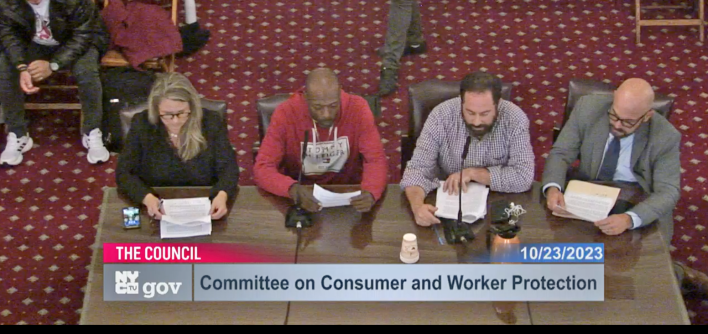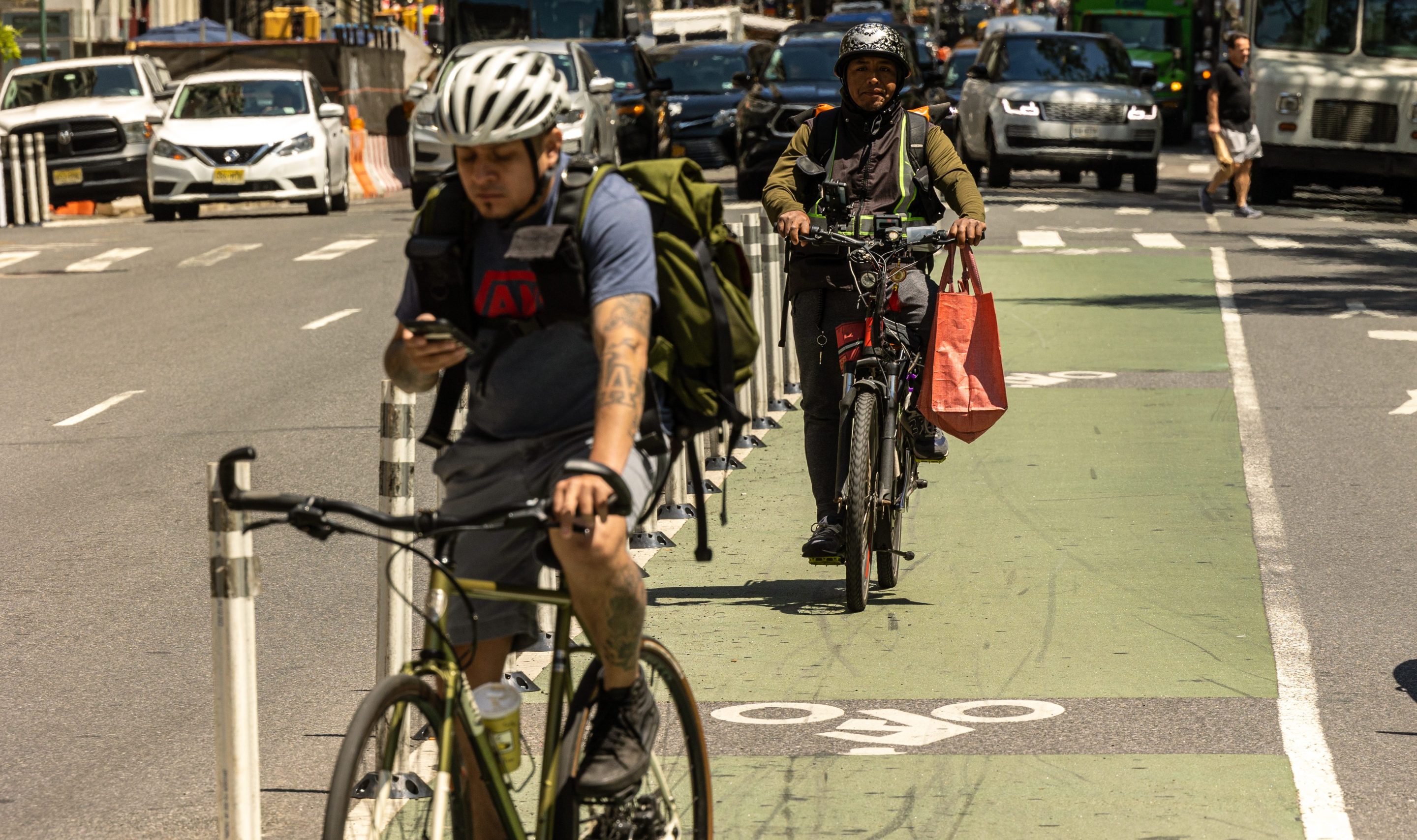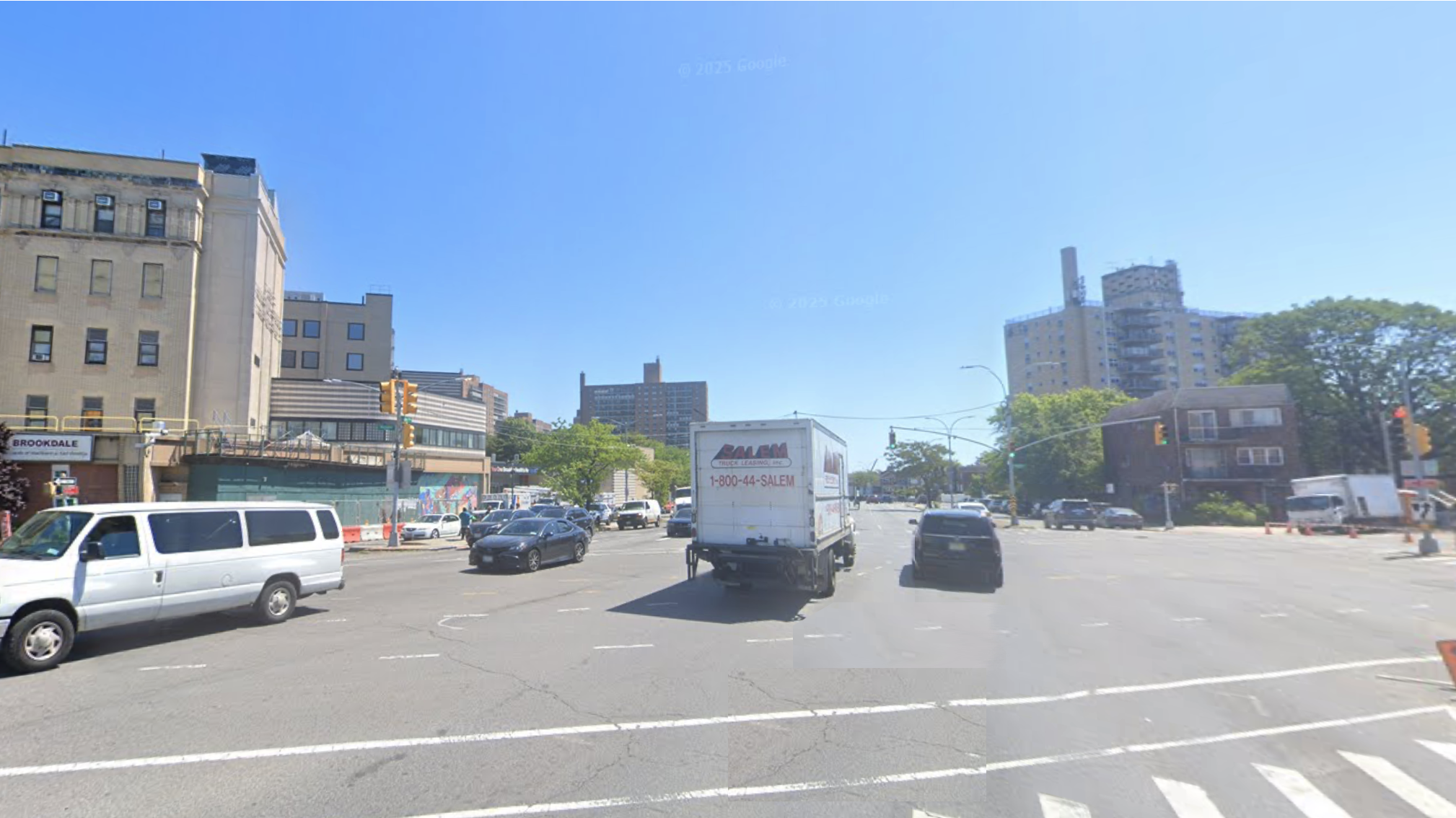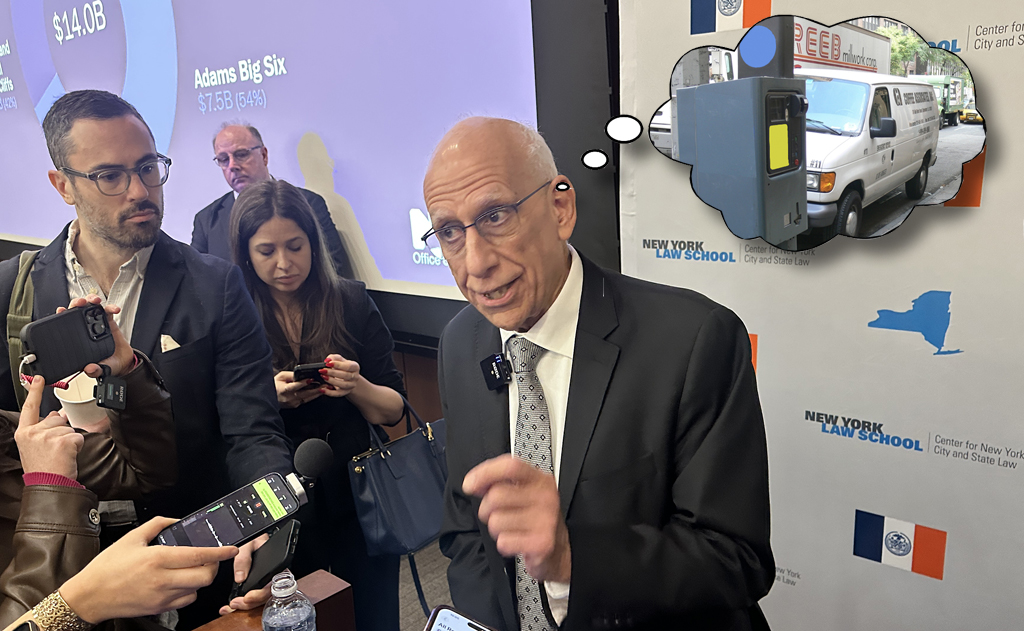They're firing back.
The app-based delivery companies are pushing back against a new bill that would require them to provide workers with safe, certified e-bikes, arguing that it wouldn’t do anything to get dangerous devices off city streets and would only lead to fraud.
Bronx Council Member Oswald Feliz introduced the legislation in September amid a scourge of deadly blazes sparked by the shoddy lithium-ion batteries that power the e-bikes often used by delivery workers, and which the FDNY says have killed 17 people in more than 230 infernos so far this year.
The bill, which currently has 17 sponsors, would force the tech giants like Uber, DoorDash, and Grubhub, to provide their workers with batteries that have been certified by the nationally recognized UL Solutions (Underwriters Laboratory) — in compliance with Local Law 39, which prohibits the sale of batteries that are not approved by UL Solutions.
But the legislation is bitterly opposed by delivery industry companies.
“Someone could sign up for three different platforms on Monday, get three new e-bikes and full safety equipment on Tuesday, make a delivery on Wednesday, and disappear with $6,000 worth of new gear by the end of the week, all without getting a single bad battery off the street,” Toney Anaya, head of government relations for DoorDash, said during a hearing on the bill, Intro. 1168, last month. “It’s not just impractical — it’s simply infeasible.”

Like his DoorDash counterpart, Uber’s Josh Gold said the proposed bill is the wrong approach. He likened it to legislation that passed in 2021 that required the apps to provide workers with insulated bags after completing six deliveries. Gold said it created waste.
“That insulated bag law has such a low threshold to be sent a bag that a year and a half after it was implemented, more than half of the workers who were sent a bag no longer used the Uber platform,” Gold said during his testimony at the Oct. 23 hearing. “It needs to be centralized so that we’re not sending five bikes out to the same individual worker and that workers who are actually using the bikes are the ones who are taking advantage of that fund.”
Regarding the bikes themselves, Gold said, the city and apps should work together to set up a so-called centralized fund to pay for workers’ safe equipment by imposing a fee on all delivery orders, suggesting it would work like the Black Car Fund, which uses a surcharge on rides to raise cash for drivers in need of injury compensation.
Feliz disputed the app companies' position, telling Streetsblog this week that the city has addressed parts of the problem that it can control, including by banning uncertified batteries, cracking down on the retailers still selling them, and creating a citywide "buy-back" program that would allow delivery workers to exchange faulty or second-hand lithium-ion batteries for safe, certified ones.
Now, the app companies must step up, he said.
“Everyone needs to help resolve this crisis, we’ve done our part. But the companies, they also need to help," Feliz said. "They shouldn't just turn a blind eye on the issues we’re seeing on a daily basis."
Feliz said his bill would work in tandem with the city’s trade-in program by getting dangerous batteries off the street while simultaneously providing workers with safe ones, but admitted that all of the details have yet to be worked out, which is typical early in the arc of the legislative process.
For now, many deliveristas are either relying on dangerous, second-hand batteries that can lead to explosive and deadly fires, or have shifted to illegal, gas-powered, easy-to-refuel mopeds in order to make a living in what many advocates consider an exploitive industry, Streetsblog has reported.
In addition, since the city banned uncertified lithium-ion batteries, the cost of replacement power packs has skyrocketed, as Streetsblog also reported.
"We are talking about $3,000 to $5,000, so the transition cost [to safe batteries] is creating a financial burden on deliveristas," Ligia Guallpa, the executive director of the Worker's Justice Project, testified last month in support of Feliz's bill. "At the end of the day, [the delivery companies] are the ones who are profiting and benefiting from the labor of deliveristas."
The same delivery companies are also in court seeking to block the city's proposed minimum pay rate for delivery workers, which would increase their current rate from just $7.09 per hour on average, excluding tips, to nearly $20 an hour by 2025.
The wheels of justice turn much more slowly than delivery workers' -- last week, the appellate division imposed an interim stay of the minimum pay rate, again delaying its implementation, per @helloDCWP https://t.co/s4yYz6Tsmd
— Julianne Cuba (@Julcuba) October 4, 2023
Gold said that the minimum pay rate took into account the cost of various expenses for workers, like their e-bikes, batteries, and helmets, in order to do their jobs safely. (He said the app companies were not seeking to block that part of the initiative.)
With industry enraged, the Adams administration, for now, has indicated that it supports Feliz's bill.
“From the administration’s perspective, we do believe business apps that are engaging these workers bear a responsibility in facilitating that and ensuring that their workers are operating with safe devices and that when they’re on our streets as well that they’re being dispatched safely,” said Carlos Ortiz, assistant commissioner for external affairs at the Department of Consumer and Worker Protection, during the hearing.






